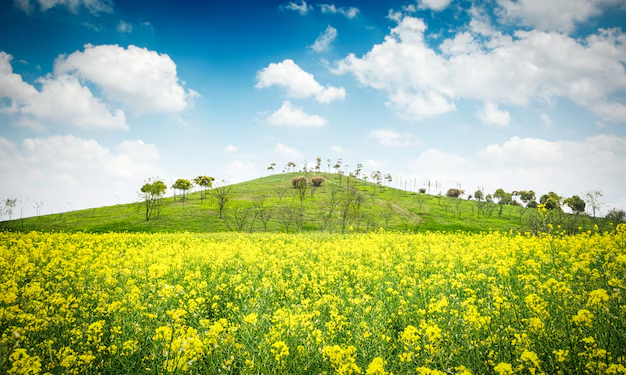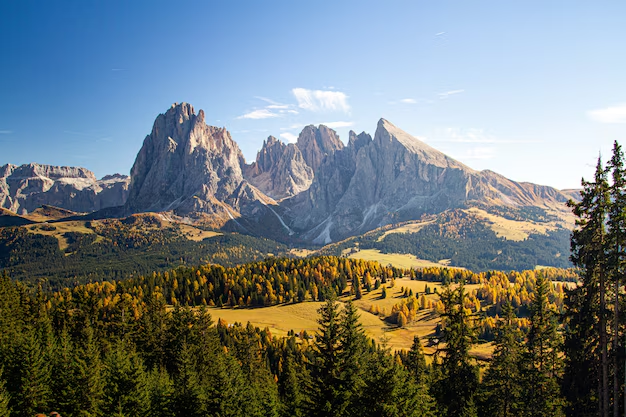In an increasingly urbanized and technology-driven world, the bond between humans and nature has become more tenuous than ever. Modern life often pulls us away from the very environment that sustains us, with its endless demands and fast-paced lifestyle. However, the concept of being in harmony with nature is more important today than ever before. Embracing the natural world and reconnecting with it offers a multitude of benefits, not only for the environment but also for our physical, mental, and emotional well-being.
The Importance of Harmonizing with Nature
The relationship between humans and nature has always been intertwined. Throughout history, our survival and thriving were closely linked to our environment. Our ancestors relied on nature for food, shelter, and medicine, and they understood the rhythms of the Earth. This relationship was characterized by respect, reverence, and understanding of natural processes. However, the industrial revolution and technological advancements have distanced many of us from nature, leading to a loss of this balance.
Being in harmony with nature means understanding its cycles, respecting its rhythms, and taking actions that support and nurture the environment. It is a recognition that we are part of a larger ecosystem, not separate from it. This perspective leads to a deeper appreciation for the natural world and encourages a mindset of conservation, sustainability, and balance.
The Health Benefits of Connecting with Nature
When we spend time in nature, we not only benefit the environment but also ourselves. Numerous studies have shown that spending time outdoors can significantly improve mental, emotional, and physical health. Nature has a restorative power that helps reduce stress, anxiety, and depression. Research has found that exposure to natural environments reduces levels of cortisol, a hormone associated with stress, while boosting mood and promoting a sense of calm.
The benefits of nature are not limited to mental health. Physical health also improves when we embrace outdoor activities. Walking in the woods, hiking through mountains, or simply sitting in a garden helps lower blood pressure, reduces the risk of heart disease, and promotes physical fitness. Engaging in outdoor activities often encourages movement, whether it’s walking, cycling, or swimming, which contributes to better overall health.
In addition, nature boosts our immune system. Studies have shown that exposure to natural environments, particularly forests, can increase the number of natural killer cells in the body, enhancing our ability to fight infections. The fresh air, sunlight, and natural surroundings contribute to a sense of vitality and well-being.
How Can We Embrace Nature in Our Daily Lives?
Embracing nature doesn’t require drastic changes or a complete lifestyle overhaul. There are simple, everyday practices that can help us reconnect with the natural world and live in harmony with it:
- Spend Time Outdoors: The easiest way to embrace nature is to spend time outside. Whether it’s a walk in the park, a hike in the woods, or simply sitting under a tree, being outdoors helps us reconnect with nature. Even a few minutes each day can have a profound effect on our well-being.
- Practice Mindfulness in Nature: Mindfulness involves being present in the moment and paying attention to our surroundings. Practicing mindfulness in nature allows us to notice the beauty around us—the sound of birds chirping, the scent of flowers, or the feel of the wind on our skin. This practice helps us foster a deeper connection with the Earth.
- Engage in Sustainable Practices: Living in harmony with nature also means making conscious choices to reduce our environmental impact. This can include reducing waste, conserving water, supporting sustainable food sources, and using eco-friendly products. Small, everyday actions can collectively make a big difference.
- Gardening: Growing your own plants, flowers, or food not only nurtures the Earth but also helps you form a stronger bond with nature. Gardening encourages mindfulness and patience, offering a sense of accomplishment and connection to the land.
- Connect with Nature through Art: Whether it’s photography, painting, or writing, nature has inspired artists for centuries. Engaging with nature through art can deepen your appreciation and help you see the world around you in new ways.
The Role of Conservation in Harmony with Nature
To truly live in harmony with nature, we must also prioritize its conservation. The Earth is facing unprecedented environmental challenges, including climate change, habitat destruction, and pollution. These issues threaten not only the natural world but also our own survival.
Conservation efforts, such as protecting wildlife habitats, reducing deforestation, and investing in renewable energy sources, are critical to maintaining the balance of the Earth’s ecosystems. By supporting conservation initiatives and making eco-conscious decisions in our daily lives, we can contribute to the preservation of the planet for future generations.
7 Frequently Asked Questions About Embracing Nature
1. How can spending time in nature improve mental health?
Spending time outdoors reduces stress, anxiety, and depression by promoting relaxation, boosting mood, and enhancing mental clarity. Natural environments have a calming effect on the mind and help restore mental balance.
2. How does nature benefit physical health?
Nature promotes physical health by encouraging outdoor activities that improve cardiovascular fitness, lower blood pressure, and strengthen the immune system. Time spent in natural environments has also been linked to increased physical activity.
3. Can I live in harmony with nature if I live in a city?
Yes, it’s possible to live in harmony with nature even in urban areas. You can incorporate nature into your life by visiting parks, using sustainable products, reducing your environmental footprint, and engaging in eco-friendly practices.
4. What are sustainable practices I can adopt?
Sustainable practices include reducing waste, conserving energy and water, supporting eco-friendly businesses, choosing sustainable food sources, and minimizing the use of single-use plastics.
5. How can I teach my children to respect nature?
Teaching children to respect nature involves spending time outdoors, explaining the importance of conservation, and modeling sustainable behaviors. Encourage curiosity about the natural world and involve them in eco-friendly practices like gardening or recycling.
6. Why is conservation so important?
Conservation is essential because it helps preserve biodiversity, maintains ecological balance, and ensures that natural resources are available for future generations. It is crucial for the survival of both humans and wildlife.
7. How can nature help me feel more connected to the world?
Nature fosters a sense of connection by reminding us of the interconnectedness of all living things. Spending time in nature helps us feel grounded, reduces feelings of isolation, and strengthens our relationship with the planet.
Conclusion
Living in harmony with nature is not just about environmental stewardship; it’s about fostering a deep connection with the Earth that benefits both our well-being and the health of the planet. By embracing the natural world—whether through spending time outdoors, practicing sustainability, or supporting conservation efforts—we can live more fulfilling, healthier lives while ensuring that future generations inherit a planet that is as vibrant and abundant as the one we enjoy today.
Key Takeaways
- Embracing nature offers numerous mental, physical, and emotional benefits, including stress relief, improved health, and increased well-being.
- Simple practices, like spending time outdoors, gardening, and adopting sustainable habits, can help reconnect us with the natural world.
- Conservation efforts are essential to preserving nature and ensuring that future generations can enjoy its beauty and resources.
- Living in harmony with nature involves respecting its rhythms, understanding its ecosystems, and making eco-conscious decisions every day.




